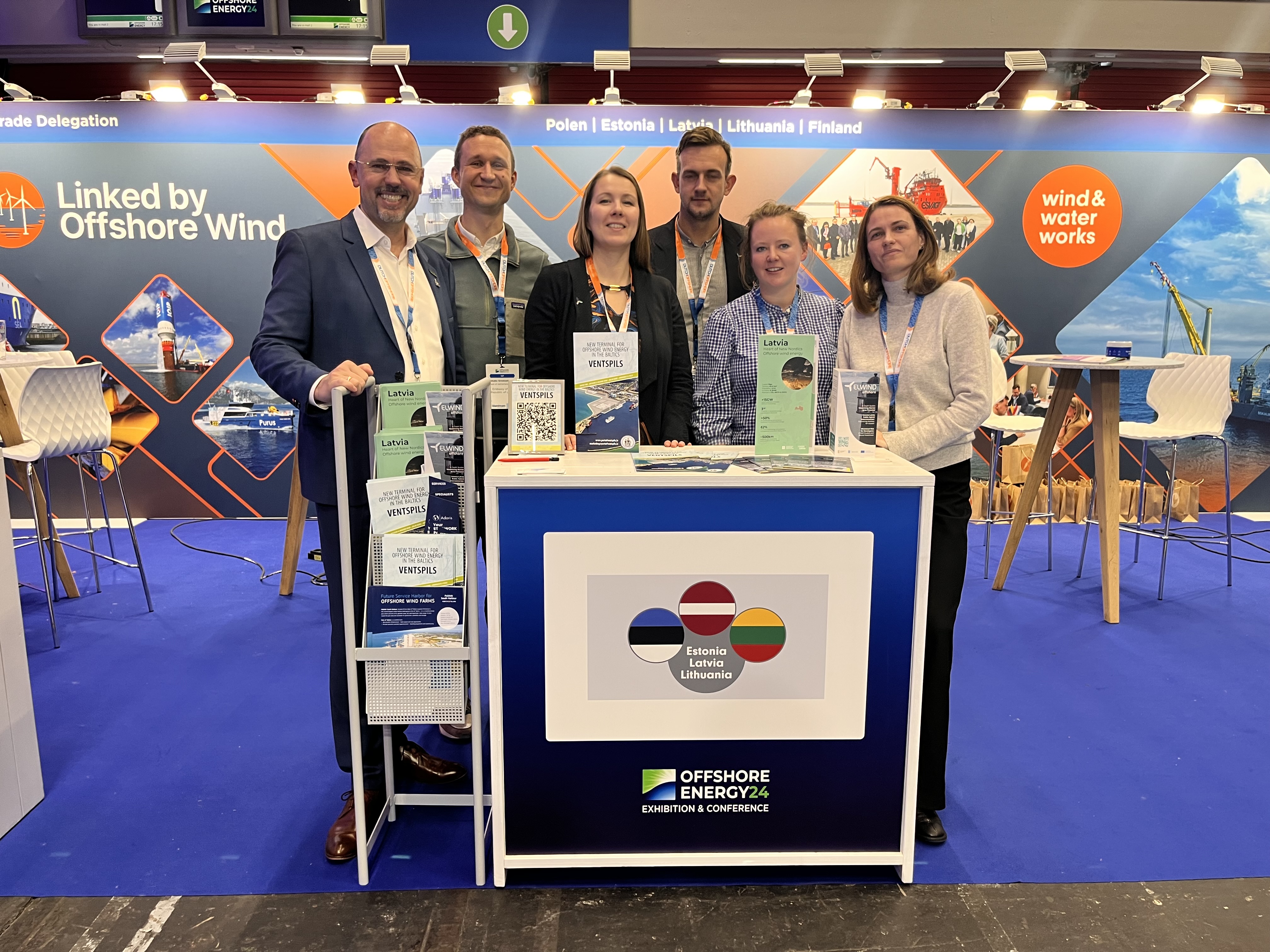The Freeport of Ventspils Authority continues to explore renewable energy resources, drawing insights from industry experts in other countries. At the end of November, Kaspars Liepiņš, the developer of the renewable energy cluster of the Freeport of Ventspils Authority, participated in the event “Offshore Wind Visit to the Netherlands”, taking place in the Netherlands.
During the event/exhibition, an interactive panel discussion about the development of circular offshore wind farms and the increasing need for rare materials required for a successful shift from fossil fuels to renewable energy was held. The participants discussed plans for developing the hydrogen economy, upcoming innovations along the coast, and the general growth of the renewable energy industry.
During the Q&A session, participants discussed the Netherlands’ prior experience with floating solar farms and how they were integrated with offshore wind farms, emphasizing that this was a promising way to boost wind farms’ potential. The EU’s proposed Critical Raw Materials Act was also discussed in relation to the shifts in the global economy. It was emphasized that the EU will never be a self-sufficient union of nations, therefore, its goal is to diversify its supply options.
The event was organized by LinkedbyOffshoreWind, the Embassy of the Netherlands in Finland, the Embassy of the Netherlands in Estonia, the Embassy of the Netherlands in Latvia, the Embassy of the Netherlands in Lithuania, and the Embassy of the Netherlands in Poland.
The Freeport of Ventspils Authority partook in the event to fortify existing cooperation contacts and create new ones, working on the vision of the offshore wind port and the Green Energy Cluster. It was an excellent opportunity to apply for the joint pavilion of the Baltic States, Finland, and Poland, supporting the joint Estonian-Latvian cross-border offshore wind energy project “ELWIND”. The port of Ventspils has a great chance of developing into a prominent service base for offshore wind farms in the Baltic Sea because of its strategic location and broad logistics capabilities.

